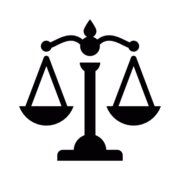Best Foreclosure Lawyers in Arezzo
Share your needs with us, get contacted by law firms.
Free. Takes 2 min.
Free Guide to Hiring a Real Estate Lawyer
List of the best lawyers in Arezzo, Italy
About Foreclosure Law in Arezzo, Italy
Foreclosure in Arezzo, Italy, involves a legal process where a lender seeks to recover the balance of a loan from a borrower who has stopped making payments. The process typically results in the sale of the mortgaged property or asset. In Arezzo, as in the rest of Italy, foreclosure is governed by national laws that allow lenders to enforce their right to sell the property as a means to settle unpaid debts. The process can be complex and requires adherence to a structured legal framework to ensure both lenders' and borrowers' rights are protected.
Why You May Need a Lawyer
Legal representation is often necessary in foreclosure cases due to their complexity and potential financial implications. Here are common situations where legal assistance might be required:
- You are facing foreclosure and need to understand your rights and options.
- You need assistance in negotiating with lenders to possibly restructure debt.
- Representation in court is required to ensure procedural defenses are in place.
- There's an interest in exploring alternatives to foreclosure, such as short sales or deeds in lieu of foreclosure.
- There are disputes regarding the validity of the mortgage or the foreclosure proceedings.
Local Laws Overview
In Arezzo, Italy, foreclosure proceedings are primarily governed by the Italian Civil Procedure Code. The key aspects include:
- Judicial Process: Foreclosures must generally go through the court, ensuring judicial oversight of the proceedings.
- Enforcement Orders: A lender obtains an enforcement order to begin the foreclosure process.
- Auction: Properties are sold via public auction. Multiple auction rounds can occur if the property does not sell at the initial auction.
- Debtors' Rights: Borrowers have rights under the Consumer Code, including being informed of their options and access to any legal protections available.
- Debt Restructuring: Opportunities for debt restructuring can be part of a resolution strategy, which may involve court-approved repayment plans.
Frequently Asked Questions
What is the foreclosure process in Arezzo?
The foreclosure process in Arezzo involves court proceedings where the lender must obtain a judicial order to sell the property. The property is then sold at a public auction to recover the loan amount.
Can I stop foreclosure once it has started?
Yes, borrowers can potentially halt foreclosure by negotiating a repayment plan or restructuring the loan. Legal advice and intervention are often necessary to explore these options fully.
How long does the foreclosure process take?
The duration can vary, typically taking several months to years, depending on the complexity of the case and the court's schedule.
What are my rights during foreclosure?
Borrowers have the right to be informed about the proceedings, to dispute the foreclosure, and to explore alternatives to foreclosure, like restructuring or refinancing.
Can the bank take my personal property?
Foreclosure generally affects the mortgaged property. Personal property is not typically at risk unless explicitly included as collateral in the loan agreement.
Is it possible to negotiate with the bank during foreclosure?
Yes, it's often possible to negotiate with the bank to explore options like loan modification or refinancing to avoid foreclosure.
What happens if my property doesn't sell at auction?
If a property doesn't sell at auction, subsequent auctions may be held. In some cases, the lender may take possession of the property.
Do I need to attend court hearings for foreclosure?
It's advisable to attend court hearings to represent your interests. A lawyer can provide guidance and potentially represent you.
Can I sell my house during foreclosure?
Yes, selling the house can be a way to avoid foreclosure, provided the sale price covers the outstanding loan amount.
What should I do if I receive a foreclosure notice?
Seeking immediate legal advice can help you understand your options and rights. Acting quickly is crucial to finding a resolution.
Additional Resources
If you are facing foreclosure in Arezzo, several resources can provide assistance and information:
- Legal Aid Services: Offers legal advice and representation for those who cannot afford it.
- Consumer Associations: Can provide guidance on borrower rights and debt settlement options.
- Local Courts: Provide information on the procedural aspects of foreclosure.
- Bank of Italy: Offers insights on financial stability and possible interventions.
Next Steps
If you require legal assistance with foreclosure, consider taking the following steps:
- Consult a Foreclosure Lawyer: Engage with a lawyer who specializes in property and foreclosure law to understand your legal position.
- Gather Documentation: Collect all relevant documents pertaining to your mortgage and foreclosure notice for your lawyer.
- Research Options: Discuss with your lawyer potential alternatives to foreclosure, such as restructuring or selling your property.
- Act Promptly: Timely action is crucial in foreclosure cases to explore and enact possible solutions.
Lawzana helps you find the best lawyers and law firms in Arezzo through a curated and pre-screened list of qualified legal professionals. Our platform offers rankings and detailed profiles of attorneys and law firms, allowing you to compare based on practice areas, including Foreclosure, experience, and client feedback.
Each profile includes a description of the firm's areas of practice, client reviews, team members and partners, year of establishment, spoken languages, office locations, contact information, social media presence, and any published articles or resources. Most firms on our platform speak English and are experienced in both local and international legal matters.
Get a quote from top-rated law firms in Arezzo, Italy — quickly, securely, and without unnecessary hassle.
Disclaimer:
The information provided on this page is for general informational purposes only and does not constitute legal advice. While we strive to ensure the accuracy and relevance of the content, legal information may change over time, and interpretations of the law can vary. You should always consult with a qualified legal professional for advice specific to your situation.
We disclaim all liability for actions taken or not taken based on the content of this page. If you believe any information is incorrect or outdated, please contact us, and we will review and update it where appropriate.










